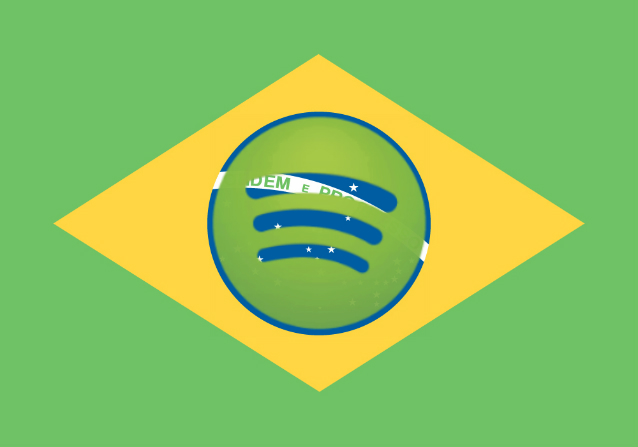Spotify continues to assist in the illumination of the path as Brazil’s music industry undergoes a historic transformation.
Spotify has contributed to a global subscriber base that now exceeds 500 million, while also paying over $10 billion to the music industry—more than any single company has ever done in a single year—according to our most recent Loud & Clear report, which provides a transparent and data-rich snapshot of the streaming economy’s powerful role in fueling the music industry’s record-breaking growth.
However, how does this apply to Brazil, where Spotify has been streaming since 2014?
READ MORE: The First Rapper To Reach 100 Million Spotify Monthly Listeners Is Kendrick Lamar
Brazilian artists earned over BRL 1.6 billion in royalties from Spotify in 2024, a 31% increase from the previous year and more than double their 2021 earnings. This growth surpasses the entire Brazilian music market, which is the ninth largest in the world, demonstrating how Spotify is generating genuine momentum for local creators. Additionally, Brazilian rights-holders comprised 84% of the Daily Top 50 recordings in Brazil, and more than 60% of the royalties generated in the country were retained locally.

Royalties generated on Spotify for Brazilian artists are increasing at a rate that exceeds that of the Brazilian music market as a whole. Those gains are explicitly delineated in our Loud & Clear report, while Spotify for Artists enables all creators to monitor their own performance in real time. Carolina Alzuguir, Head of Music at Spotify Brazil, asserts that, collectively, this transparency provides musicians with the assurance to leverage momentum into their next single, a more extensive tour, or an ambitious new project.
Influence that extends beyond the realm of success and charts
Strong, consistent engagement with fans is a contributing factor to the success of Brazilian music and artists, demonstrating that long-term development is more effective than fleeting virality. Spotify has successfully transformed casual listeners into lifelong admirers in a country where piracy was once the norm, thanks to its freemium model, which includes ad-supported and Premium tiers.
The outcomes are self-evident: Brazilian performers are featured in over 815 million user playlists, and over 25 million hours of Brazilian music are streamed daily both domestically and internationally. The Portuguese music industry is also experiencing significant growth, with royalties from these recordings increasing by 20% annually and more than doubling since 2021.

Partners in progress
Creators are provided with the necessary insights to achieve success through tools such as Loud & Clear and Spotify for Artists. Brazilian music is currently more influential, diverse, and global than it has ever been. For instance, female Brazilian performers such as MC STER, Anitta, and Bibi Babydoll are experiencing unprecedented growth, with their international streams increasing by 51% in 2024. In the meantime, Brazilian artists were discovered by nearly 11.8 billion individuals for the first time this year, a 19% increase from the previous year. This discovery has connected these artists with admirers worldwide, from Mexico and the United States to Germany and Spain.
Spotify is creating a more inclusive and equitable global music economy by closing historical gaps and amplifying underrepresented voices, enabling any artist, regardless of location, to flourish on their own terms.
“Discovery precedes the paycheck.” Brazilian songs were featured in hundreds of millions of Spotify playlists and generated billions of first-time streams last year. The rise of artists is monitored live in Spotify for Artists, and they are able to immediately engage with new listeners and convert their initial plays into devoted followers. Carolina stated, “That feedback loop converts curiosity into community, and community is the driving force behind a career.”
Step into the ultimate entertainment experience with Radiant TV! Movies, TV series, exclusive interviews, live events, music, and more—stream anytime, anywhere. Download now on various devices including iPhone, Android, smart TVs, Apple TV, Fire Stick, and more!


